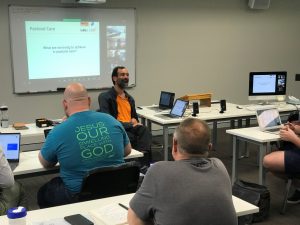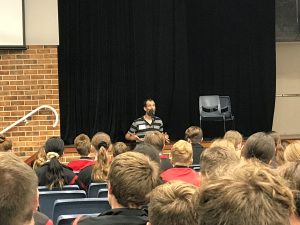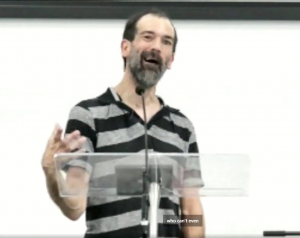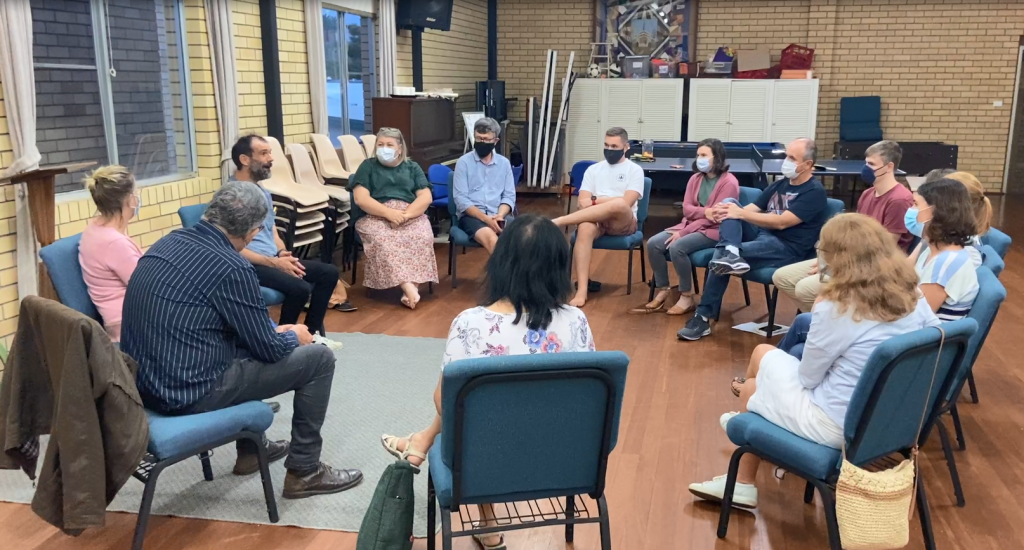
Jericho Road Disability Advocacy is equipping Presbyterian Churches across NSW and the ACT to respond to the needs of people with disabilities.
What we do
At Jericho Road, we believe that every person is made in the image of God, no matter what their abilities, challenges or setbacks may be. Our Disability Advocate, Rev. Jason Forbes, is passionate about equipping churches to respond to the needs of people with disabilities. Jason’s own lived experience with a disability, as well as his theological training, provide him with insight and wisdom to help shape his powerful message: “The gospel is inclusive, therefore churches should be inclusive.”
We have a range of resources and articles that have been produced as a way for churches to begin engaging in this conversation within their own communities. Jason runs training workshops where these topics can be explored further, and can also visit churches as a guest speaker.
We’d love to support our churches in the area of disability advocacy and ministry, so please get in touch.
Meet Jason



I was born in Darlinghurst in 1975 and grew up in Gosford. I enjoy cycling, travelling, motorsport, and deep conversation.
Cerebral Palsy affects my speech, fine motor and gross motor controls. Conversing and socialising with people I don’t know can be challenging, and is a point of anxiety. Not having good fine motor control means I can’t do up buttons, or tie shoe laces, or write with a pen. Not have good gross motor control means I don’t move as quickly or as efficiently as others – unless I’m on my bike.
None of this prevents me from enjoying an independent and active lifestyle.
Jesus’ healing of people with disabilities is often understood to be a reversal of the effects of the Fall. But I began to wonder, is this how those who witnessed the miracles understood them, or is this something that we as modern readers impose onto the text?
In Luke 7:22, six conditions are listed, and while blindness and lameness are readily associated with disability, leprosy, deafness, death and poverty are not. So, Jesus’ words are alluding to something that extends past modern concepts of disability.
What I discovered in the biblical narrative was a perceived correlation between an individual’s physical state and their spiritual state. Sometimes, this overlaps with modern concepts of disability while at other times it doesn’t. They key concern of Jesus was not to restore an individual’s bodily function, but to see the individual reconciled to God and their community. Within the culture of Jesus’ day, the restoration of bodily function was merely a sign of this spiritual restoration. Jesus’ healing ministry therefore sets a precedent for the church today to see the primary need of people with disabilities as being reconciled back to God and their community.
Disability Advocacy Visits
Jason will be visiting Presbyterian Churches across NSW and the ACT on his Disability Advocacy Visits. It’s a chance for churches to get to know Jason and find out why disability inclusion is so important.

It is our hope that every church will take the opportunity to hear Jason’s personal perspective, strong gospel message and his unique sense of humour.
Stories & Articles
Blog, Disability Advocacy
From Disorder to Order in our Personal Lives – Psalm 102
September 17, 2024
Have a question? Click below to get in touch with the Partner Ministries team.

